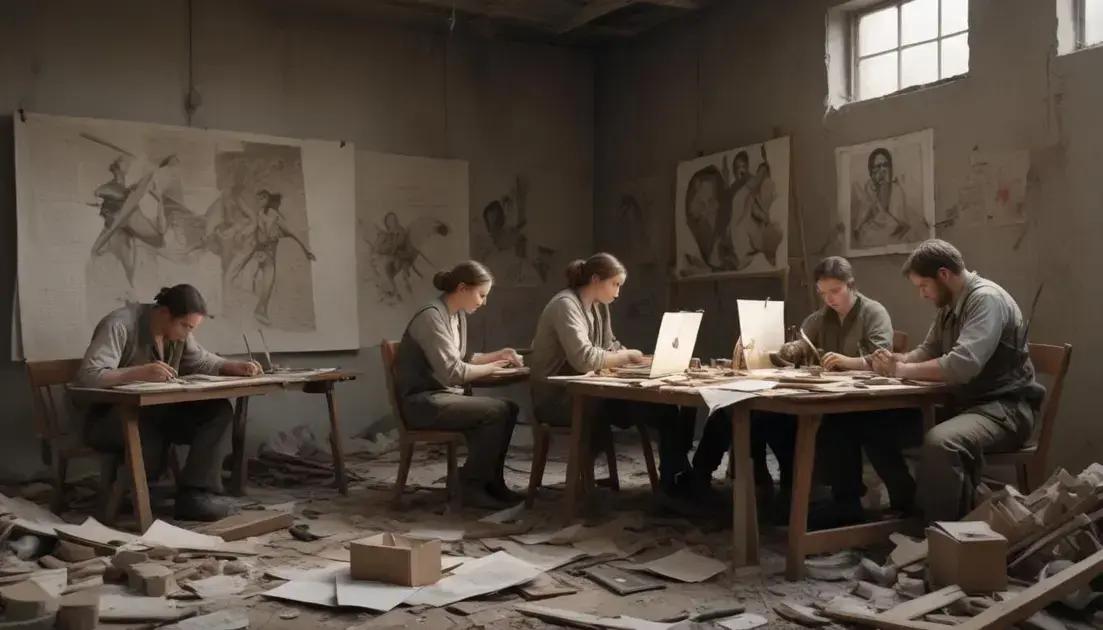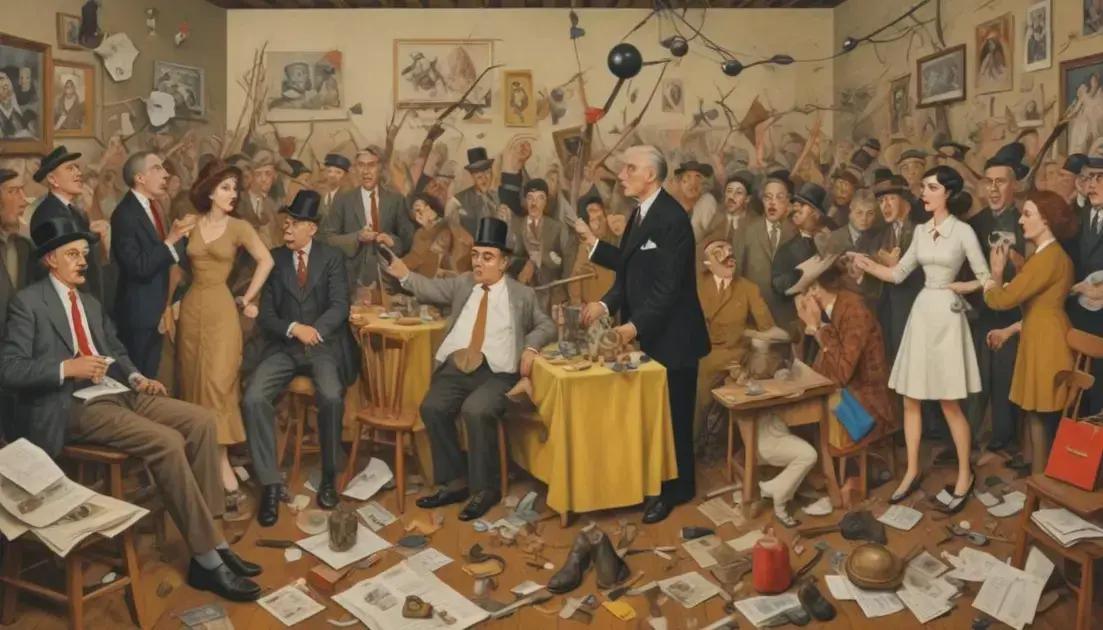
Treaty of Versailles: Imposed Peace and Seeds of War
The Treaty of Versailles, signed in 1919, formally ended World War I but imposed harsh penalties on Germany, including full blame for the war and significant reparations. These terms led to economic struggles and resentment among Germans, ultimately contributing to the rise of extremist movements and the onset of World War II. Its legacy highlights the importance of equitable agreements and the complexities involved in establishing lasting peace amongst nations.
When we talk about the Treaty of Versailles, we’re diving into a pivotal moment in history that shaped the future of nations. What really happened post-war? Let’s explore!
Introduction to the Treaty of Versailles
The Treaty of Versailles was signed in 1919. It ended World War I and aimed to establish peace. The treaty brought major changes to Europe. It shaped borders and shifted power balances. Many countries were affected. But not everyone was happy with it.
This treaty forced Germany to take responsibility for the war. They had to pay heavy reparations. This led to deep resentment among Germans. Many felt it was unfair. This anger would later fuel conflicts.
In fact, the treaty included many terms that were hard to accept. Land was taken away from Germany and given to other nations. The army was also reduced to a fraction of its size.
The Treaty of Versailles set up the League of Nations. This was meant to promote peace but was not very effective. Countries often ignored its rules, which weakened the new organization.
In summary, while the treaty aimed to create peace, it sowed seeds for future wars. Understanding its impact is vital in grasping modern history.
Key Terms and Conditions
The Treaty of Versailles came with many key terms and conditions. Understanding these is really important to grasp its impact. First, Germany had to accept full blame for World War I. This was known as the “War Guilt Clause.” Many Germans felt this was unfair.
Next, the treaty required Germany to pay heavy reparations. These payments were meant to cover war damages. The total amount was very high, causing great economic trouble.
Another major term was about land. Germany lost significant territories. Areas like Alsace-Lorraine went back to France. Parts of Prussia were also given to Poland, creating a new nation.
Additionally, the treaty limited the German military. The army could only have 100,000 soldiers. They couldn’t build tanks or have an air force. This made Germany feel vulnerable and unhappy.
Lastly, the League of Nations was formed by the treaty. This organization aimed to promote peace but lacked real power. Many countries didn’t join or ignored its rules, making it less effective.
Impact on Germany
The Treaty of Versailles had a huge impact on Germany. After World War I, Germany struggled under the treaty’s terms. One big issue was the blame placed on them for the war. This made many Germans feel angry and betrayed.
Next, the reparations were a heavy burden. Germany had to pay large amounts of money to other countries. This led to severe economic problems. Inflation skyrocketed, and many people lost their jobs.
Land losses were another major issue. Germany lost key territories, which affected its economy and pride. Losing Alsace-Lorraine to France was particularly hard for many Germans to accept.
The restrictions on the military also made Germany feel vulnerable. With a small army, many feared they could not defend themselves. This feeling of weakness led to a desire for change in the coming years.
These various factors set the stage for significant political changes. Many Germans turned to extremist groups, seeking solutions to their problems. This unrest would ultimately contribute to the rise of the Nazi Party.
Legacy and Historical Consequences
The Treaty of Versailles left a lasting legacy on the world. Its consequences are still felt today. One major effect was the rise of extreme political movements in Germany. Many people were unhappy with the treaty’s terms. This dissatisfaction opened the door for leaders like Adolf Hitler.
The treaty also failed to create lasting peace. Instead of uniting nations, it created divisions. Countries felt mistrust and anger toward one another. This atmosphere set the stage for World War II.
In addition, the League of Nations was established but struggled. Many countries did not join, and it lacked authority. This reduced its ability to prevent future conflicts. In essence, it was a missed opportunity for global cooperation.
Over time, historians have debated the treaty’s fairness. Some argue it was too harsh. Others believe it was necessary to ensure security. These discussions highlight how complex the aftermath was.
The legacy of the Treaty of Versailles teaches us about the challenges of peace agreements. It shows how important it is to consider the needs and feelings of all nations involved.
Conclusion
While the Treaty of Versailles aimed to bring peace, its impact was complex. It reshaped borders, economies, and national identities. This treaty changed the course of history in many ways.
Many people suffered under the harsh terms. The blame and reparations created anger and resentment. This played a role in the events leading to World War II.
Despite these challenges, the treaty’s legacy teaches important lessons. It shows how peace agreements must consider all voices involved. Understanding history helps prevent similar mistakes in the future.
Such lessons are crucial for current and future leaders. They remind us that lasting peace requires cooperation, empathy, and fairness.
Conclusion
In conclusion, the Treaty of Versailles had a profound and lasting impact on the world. While it aimed to establish peace, it also created tensions that contributed to future conflicts. The harsh terms, including reparations and blame placed on Germany, led to deep resentment and economic struggles.
Understanding the complexities of this treaty helps us see the importance of fair agreements. It teaches us that lasting peace requires listening to all voices and considering their needs. The lessons learned from the Treaty of Versailles are still relevant today as we work towards cooperation and understanding among nations.
By studying history, we can avoid repeating the past’s mistakes and strive for a more peaceful future for everyone.


